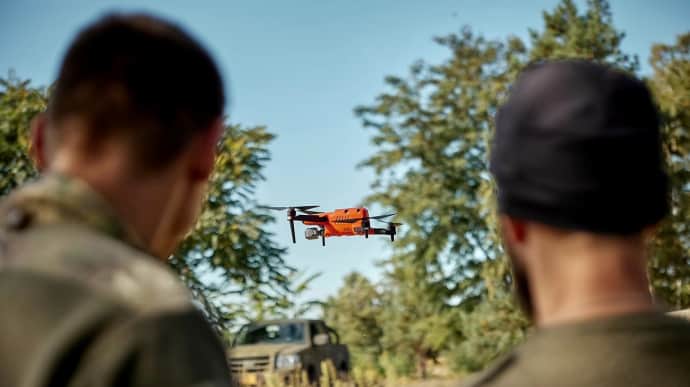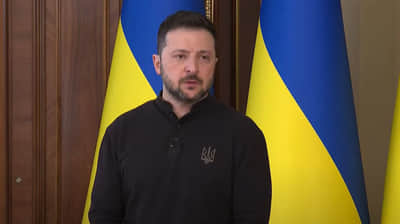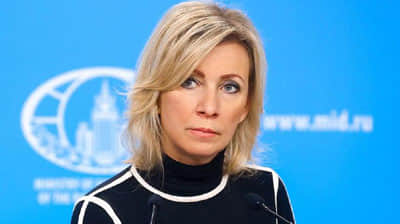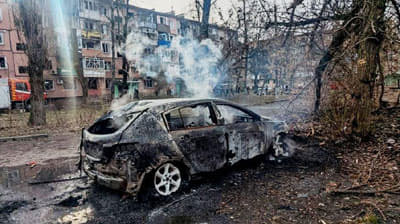Effective UAV deployment by Ukraine can't offset ammunition shortage, ISW states

Experts at the Institute for the Study of War (ISW) believe that while the Ukrainian military effectively utilises drones, it cannot fully compensate for the critical shortage of essential ammunition.
Source: ISW
Details: The effective use of drones by Ukrainian military personnel on the battlefield cannot fully compensate for the critical shortage of essential ammunition across the entire theatre of operations.
Ukrainian President Volodymyr Zelenskyy stated in an interview with the German publication Bild, published on 10 April, that Ukraine successfully produces drones, but they cannot replace air defence systems, long-range missile systems, or artillery.
As analysts point out, Ukraine's ability to repel mechanised attacks using drones provides partial mitigation; however, the persistent shortage of artillery deprives Ukrainian forces of the ability to rapidly and extensively destroy combat vehicles.
However, US General Christopher Cavoli, the Supreme Commander of NATO's Allied Forces Europe, warned on 10 April that Russian forces currently have a five-to-one advantage in artillery, but they could have a ten-to-one advantage "within weeks" if the United States continues to delay providing military assistance to Ukraine.
Experts also point out that the threat of a Russian offensive operation in Kharkiv or Sumy appears to compel the Ukrainian military to redistribute their limited forces and resources to construct defensive fortifications in these areas, and an active Russian operation to capture these cities would only further boost this dynamic.
"Ukrainian forces will likely not be able to contest the theatre-wide initiative and more proactively allocate their resources without continuing to address their manpower issues and receiving additional Western aid," the report reads.
To quote the ISW's Key Takeaways on 10 April:
- The Ukrainian military’s effective use of drones on the battlefield cannot fully mitigate Ukraine’s theatre-wide shortage of critical munitions.
- Zelenskyy stated that there are no mitigations for insufficient air defence systems and indicated that Russian strikes are forcing Ukraine to reallocate already scarce air defence assets to defend Kharkiv City.
- Zelenskyy warned about the threat of a potential future Russian ground offensive operation targeting Kharkiv City, which would force Ukraine to reallocate some of its already-strained manpower and material capabilities away from other currently active and critical sectors of the front.
- The Ukrainian Verkhovna Rada considered and adopted provisions from Ukraine’s draft mobilization law on 10 April as part of an ongoing effort to increase the sustainability of Ukrainian mobilization over the long term.
- Russian officials continue to indicate that they are not interested in any meaningful negotiations on the war in Ukraine amid Switzerland’s announcement that it will host a global peace summit on the war on 15 and 16 June.
- Kremlin Spokesperson Dmitry Peskov attempted to downplay tension in Armenian-Russian relations amid Armenia’s continued efforts to distance itself from political and security relations with Russia.
- Russian Investigative Committee Head Alexander Bastrykin claimed that Russia has no economic reason to import foreign labour, a direct contradiction of Russian President Vladimir Putin’s recent efforts to justify Russia’s current migration laws to his xenophobic ultranationalist constituency.
- Russian forces recently captured Ivanivske, a settlement east of Chasiv Yar, and advanced near Avdiivka.
- Eight Russian senators and 16 State Duma deputies submitted a bill to the Russian State Duma that would likely allow Russian authorities to deploy Russian Federal Penitentiaries Service (FSIN) employees to Ukraine, amid reports that Russia is intensifying its crypto-mobilization efforts.
Support UP or become our patron!





